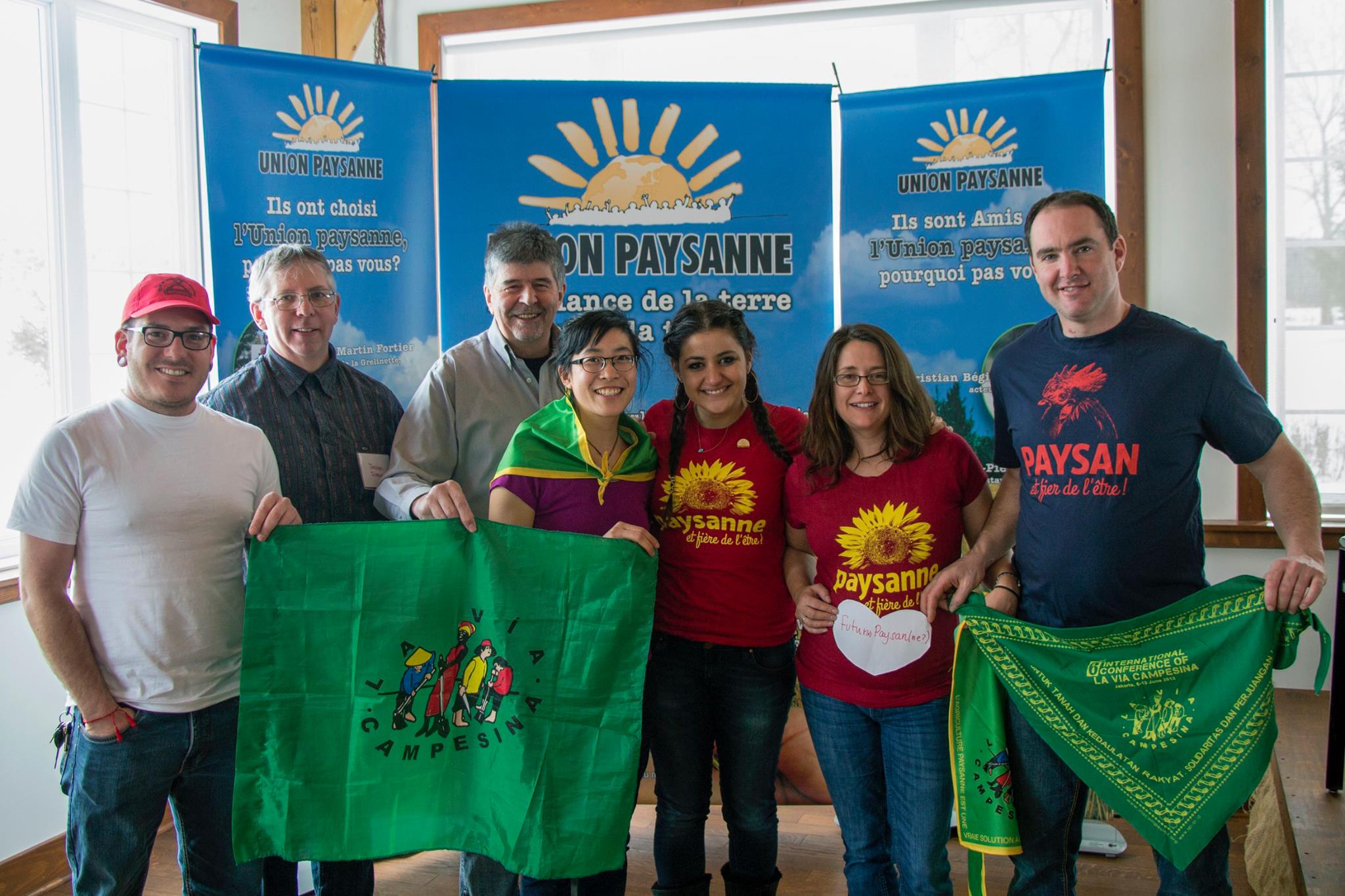Montreal, December 10, 2019 – December 10 is the International Human Rights Day and the first anniversary of the adoption by the United Nations General Assembly of the Declaration on the Rights of Farmers and Other Persons Working in Rural Areas. Union Paysanne celebrates the efforts of the international movement La Via Campesina and its allies while asking the federal and provincial governments to reflect the principles of the Declaration in Canadian and Quebec legislation.
When a seasonal agricultural worker who works on a Quebec farm with fewer than 3 permanent employees cannot join a union, when a farmer in Saskatchewan made ill by the Roundup continues to use it because he believes he has no alternative, when the viability of a Canadian dairy farm is sacrificed on the altar of free trade agreements dominated by transnational corporations, it is in all these cases a violation of the human rights described in the Declaration. The same applies to a farmer whose organic crops are threatened by contamination from nearby GMO crops or to a “conventional” farmer who has difficulty finding non-GMO seeds on the market. (See Articles 2, 9, 14, 16, 19, 19, 20 of the Declaration) And all these Canadian agricultural producers in all categories who are under heavy and constant financial pressure, often forced to supplement their income with off-farm employment, are victims of violations of their right to an adequate standard of living (See Article 16).
According to the principles of the Declaration, States must ensure that the international agreements they sign are “compatible with their human rights obligations applicable to peasants and other persons working in rural areas”. States must also “take all necessary measures to ensure that non-state actors”, including “transnational corporations, respect and strengthen the rights of peasants and other people working in rural areas”. In short, farmers’ rights, such as rights to land, seeds and biodiversity, must take precedence over broader commercial or political interests.
It is in this context that Union Paysanne applauds the UN Human Rights Council’s resolution to create a legally binding instrument on transnational corporations and human rights. As a member of the international movement La Via Campesina, we note that it is often rural and peasant communities that are most affected by the actions of transnational corporations. Land grabbing, water and soil contamination, attacks on peasant and environmental rights defenders, all these violations are the results of agro-industrial projects, exploration and mining, or infrastructure works, carried out without regard to the rights of peasant populations by transnational corporations receiving active or tacit support from the governments concerned. A legally binding instrument would end impunity for transnational corporations by obliging governments in the North where their headquarters are located to assume responsibility for regulating all their activities and by strengthening the capacity of countries in the South to control them.
It will be a long journey and a lot of effort on the part of civil society to ensure that this UN initiative leads to an instrument that is truly effective, an important complement to the International Declaration on the Rights of Farmers and Other Persons Working in Rural Areas.
At home, we should ask the federal government to support the UN initiative, while stressing the need to give real powers to the Canadian position of independent ombudsman for Canadian corporate accountability. Above all, the Canadian government, even if it abstained from voting in the United Nations General Assembly, must be reminded of its obligation to take measures to ensure the full realization of the rights set out in the United Nations Declaration on the Rights of Farmers and Other Persons Working in Rural Areas.

